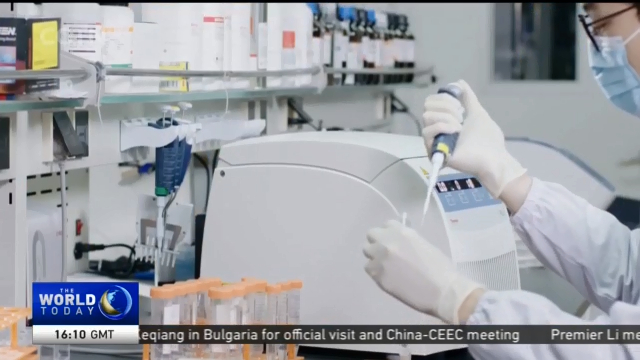
09:18, 07-Jul-2018
Research And Development: China gives researchers more autonomy with funding and technical decisions
Updated
07:53, 10-Jul-2018
01:57

Premier Li Keqiang presided over an executive meeting of the State Council on Wednesday to increase the autonomy of scientific researchers and encourage innovation. Specifics of the measures were unveiled on Friday at the State Council Information Office. Rory Coen has more.
Complicated funding procedures and unreasonably high evaluation standards have been some long-standing issues facing China's scientific research efforts. But starting now, researchers working in science and technology fields will have more freedom with their work.
LI MENG VICE MINISTER OF SCIENCE AND TECHNOLOGY "We take the measures based on our trust of researchers. We respect the status of every personnel in scientific research. We are trying to improve the way research is managed according to the laws of scientific research, and to alleviate the burden on researchers."
The main point of the measures is to cut red tape for researchers. This includes reporting on projects, as well as their inspections and evaluations. Specifically, basic exploratory research and projects that have been underway for less than 3 years will not require inspection. Also, to a reasonable extent, researchers will be given greater autonomy with allocating funds and making certain decisions. They can self-adjust research plans and technical procedures, so long as the larger goals remain unchanged.
HE DEFANG, DIRECTOR DEPARTMENT OF POLICY, REGULATION AND SUPERVISION, MINISTRY OF SCIENCE AND TECH "To implement an annual salary system for major projects is to produce first-class results, and to support the country's overall quality of economic development. The simplification of the process is to lead to better outcomes with scientific research."
In addition, the quantity and influence factor of academic papers will not be the only criteria to weigh up researchers' work. The government is improving incentive mechanisms for more innovations in basic research. Rory Coen, CGTN, Beijing.

SITEMAP
Copyright © 2018 CGTN. Beijing ICP prepared NO.16065310-3
Copyright © 2018 CGTN. Beijing ICP prepared NO.16065310-3